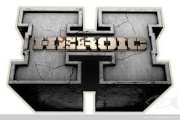RR Phantom

Location : Wasted Space
Job/hobbies : Cayman Islands Actuary
 |  Subject: Brave government employee tells the truth about the U.S. Securities and Exchange Commission Subject: Brave government employee tells the truth about the U.S. Securities and Exchange Commission  Sun Apr 23, 2023 5:28 pm Sun Apr 23, 2023 5:28 pm | |
|
Rendering Innovation Kaput: Statement on Amending the Definition of Exchange
Commissioner Hester M. Peirce

April 14, 2023
Thank you, Mr. Chair. Stagnation, centralization, expatriation, and extinction are the watchwords of this release. Rather than embracing the promise of new technology as we have done in the past, here we propose to embrace stagnation, force centralization, urge expatriation, and welcome extinction of new technology. Accordingly, I dissent.
Over thirty years ago, the Commission faced a challenge: Firms were developing innovative ways to bring together buyers and sellers. These exchange alternatives did not promise continuous liquidity or commit to maintain an active market in particular securities, but they did provide more flexibility than market participants had on a traditional exchange.[1] The Commission could have required them to register as national securities exchanges,[2] but doing so would have rendered the innovation “kaput”, as the Seventh Circuit put it when it upheld the Commission’s action to permit one of these systems to operate.[3] Why? Well, they were incompatible with exchange regulation of that era. For example, the Seventh Circuit noted that the so-called Delta system, which involved a firm that issued options, a registered broker-dealer that matched counterparties, and a bank that cleared the trades, could not “register as an exchange” because it was not controlled, as exchange registration required at that time, by members that were also registered as brokers.[4]
In other words, faced with a choice between fostering innovation or stifling it with an inflexible and expansive interpretation of the statutory definition of “exchange,” the Commission chose innovation.[5] In permitting the Delta system to continue operation, the Commission grappled honestly with the real-world consequences of its exercise of authority. It recognized that “an expansive interpretation of” the statutory exchange definition would harm “innovation and competition.”[6] Accordingly, the Commission determined that it was “not constrained to apply a particular provision of a statute so expansively as to produce absurd consequences” and instead adopted a sensible narrower interpretation.[7]
This narrower interpretation facilitated further innovation. Through a series of no-action letters over the next several years, the staff gave the green light to a number of other alternative trading systems.[8] Then, in 1998, after a number of such systems had emerged, the Commission set about to create a tailored regulatory framework.[9] It created Regulation ATS by combining a more-expansive definition of exchange with a prudent exercise of the exemptive authority that Congress had provided two years earlier.[10]
While the origin story for Regulation ATS is a sound blueprint for how the SEC should handle emerging technologies, today’s comment reopener confirms that the Commission of that era is a relic of bygone times. As one commenter on the proposal noted, this is “a tale of two Commissions.”[11] No longer does this Commission consider the real-world effects of its exercise of authority. No longer does this Commission think creatively about regulatory alternatives that advance the Commission’s mission while preserving space for potentially disruptive innovation. No longer does this Commission worry that regulatory bullheadedness often produces absurd consequences.
Rather, today’s Commission aggressively expands its regulatory reach to solve problems that do not exist. Today’s Commission treats its basic approach to exchange regulation as something that must not—indeed cannot—be altered to allow room for new technologies or for new ways of doing business. Today’s Commission tells entrepreneurs trying to do new things in our markets to come in and register. When entrepreneurs find they cannot, the Commission dismisses the possibility of making practical adjustments to our registration framework to help entrepreneurs register, and instead rewards their good faith with an enforcement action. Today’s Commission treats the notice-and-comment rulemaking process not as a conversation, but as a threat.
.https://www.sec.gov/news/statement/peirce-rendering-inovation-2023-04-12?fbclid=IwAR2sbqOv97sDdL_3ljTAPoayIuc320EW7IgK9kBXsa6lHxK6yqeI6WPRaOg
 |
|

